
tribal dance
THONGSENG DANCE, andhra pradesh
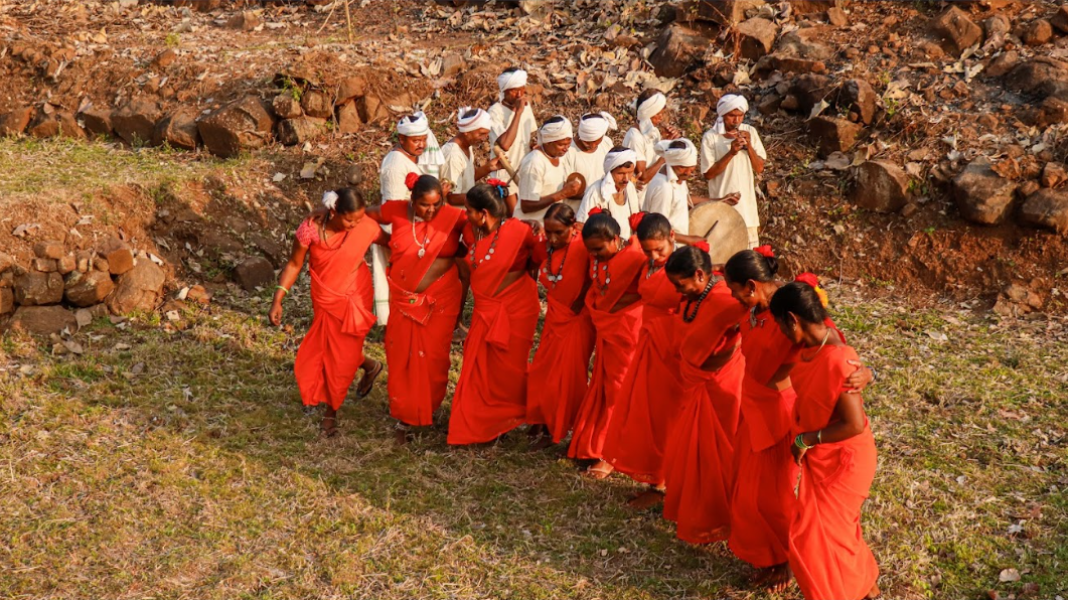
The Thongseng dance of the Konda Savara tribe, a particularly vulnerable tribal group in Andhra Pradesh in seven different forms, is a lively cultural tradition especially associated with various festivals, harvests, and community occasions. It is a dance of both men and women with rhythmic jingling of anklets adding to the music. Traditional clothes are worn by participants, and men play ethnic instruments while women recite folklore. The highlight is when a woman dancer uses an umbrella to guide synchronized movements. The Thongseng traditional dance forms are (1) Jumbong Thongseng; (2) Judodeb Thongseng; (3) Abdur Thongseng; (4) Guaren Thongseng; (5) Sirn Thongseng; (6) Kinpur Thongsend and (7) Gusada Thongseng.
The Konda Savara inhabits a large tribal population of Andhra Pradesh, which mostly centers on the Seethampeta area of Parvathipuram Manyam district. They are said to be a mix of Mongolian and Dravidian races and usually prefer to live in hilly or valley areas. The tribe boasts a rich heritage, practicing agriculture and colorful traditions. Significantly, their dances, particularly the Thongseng, are very important in communal activities and ceremonies, mirroring their social and religious lives as well as respecting their ancestral traditions. Thongseng is a sora word meaning "Ring Rang Jing" which signifies the Jingling sound of Andelu/Anklets during dancing.
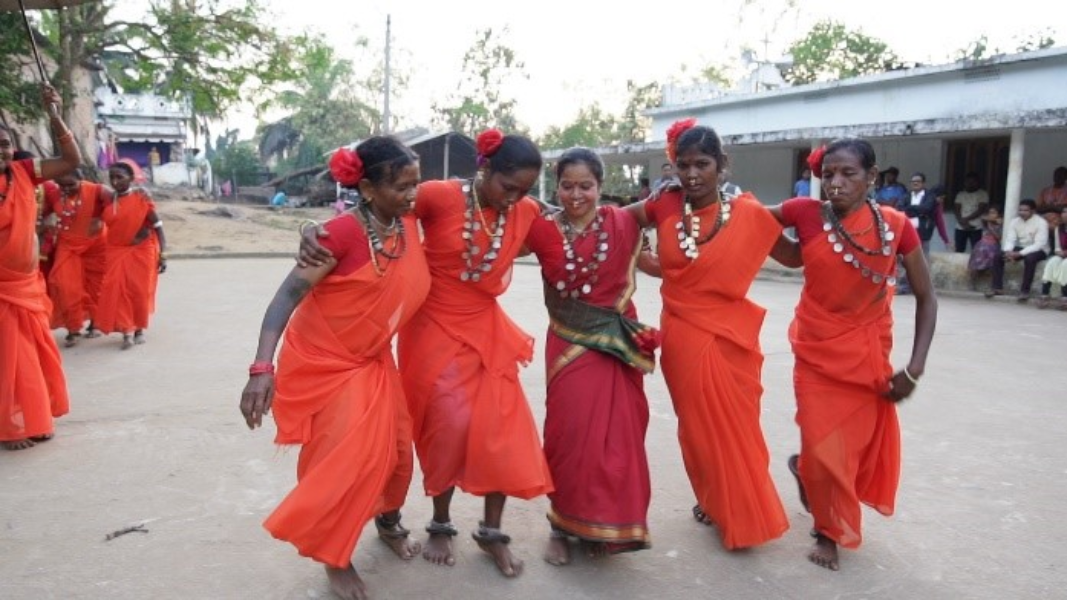
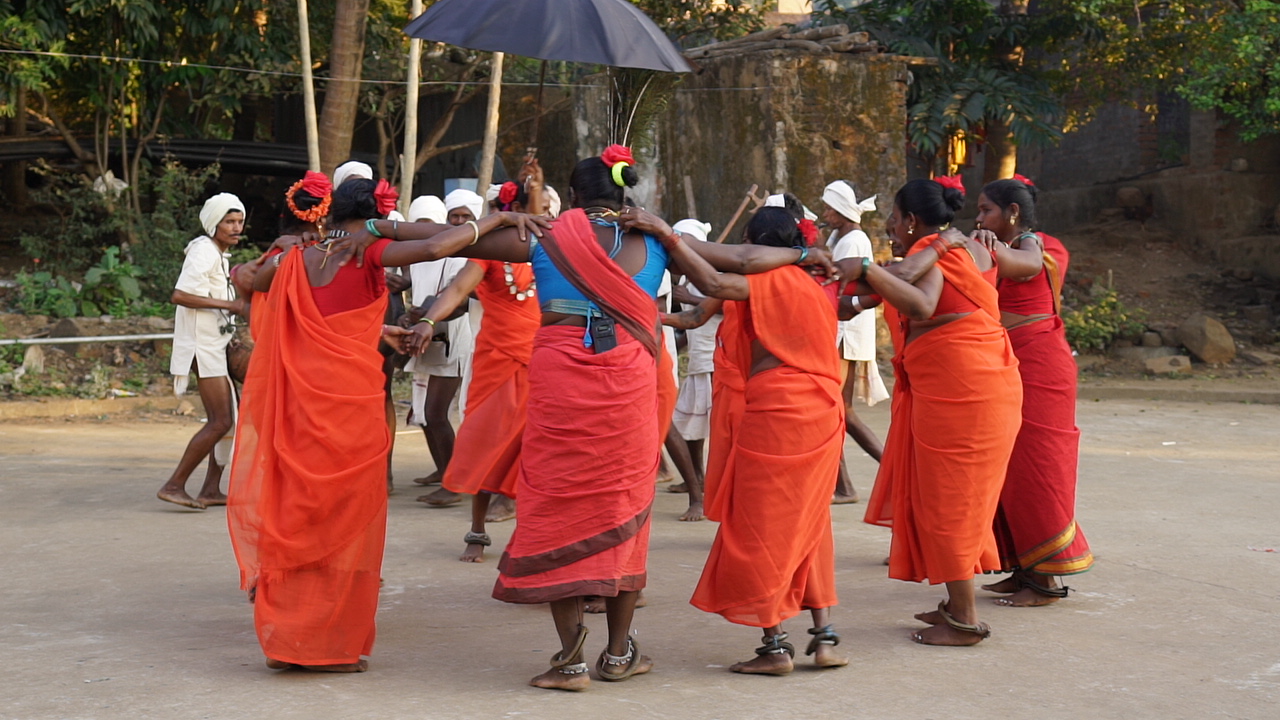
Men in the Thongseng dance usually wear dhotis, accompanied by turbans and towels. Women wear colorful red sarees with blouses, accompanied by traditional nose rings and earrings. Bronze anklets with bells add to their rhythmic movements, making the dance more vibrant. Women tie their hair during performances, decorating it with flowers, and also wear beads and bracelets that symbolize their cultural identity. Their attire is finalized with traditional makeup, reinforcing the significance of clothing in commemorating their diverse heritage during this energetic dance.
In Thongseng dance, music plays a vital role, performed by men using various traditional instruments. They utilize ten types, including the stretched membrane drum and kettle-shaped Tudum. The Cornet, or Taretapaneh, adds melody, while the bamboo stem fiddle (Goh Goh inz deb) features a coconut resonator. Other instruments include brass cymbals (Gangalam), small drums (Dagadu), and multiple bells. Unique percussion instruments like the rasp (Drih goi daanz) and slit bamboo clapper (Tanarjub daanz) create a lively and engaging musical backdrop for the dancers.
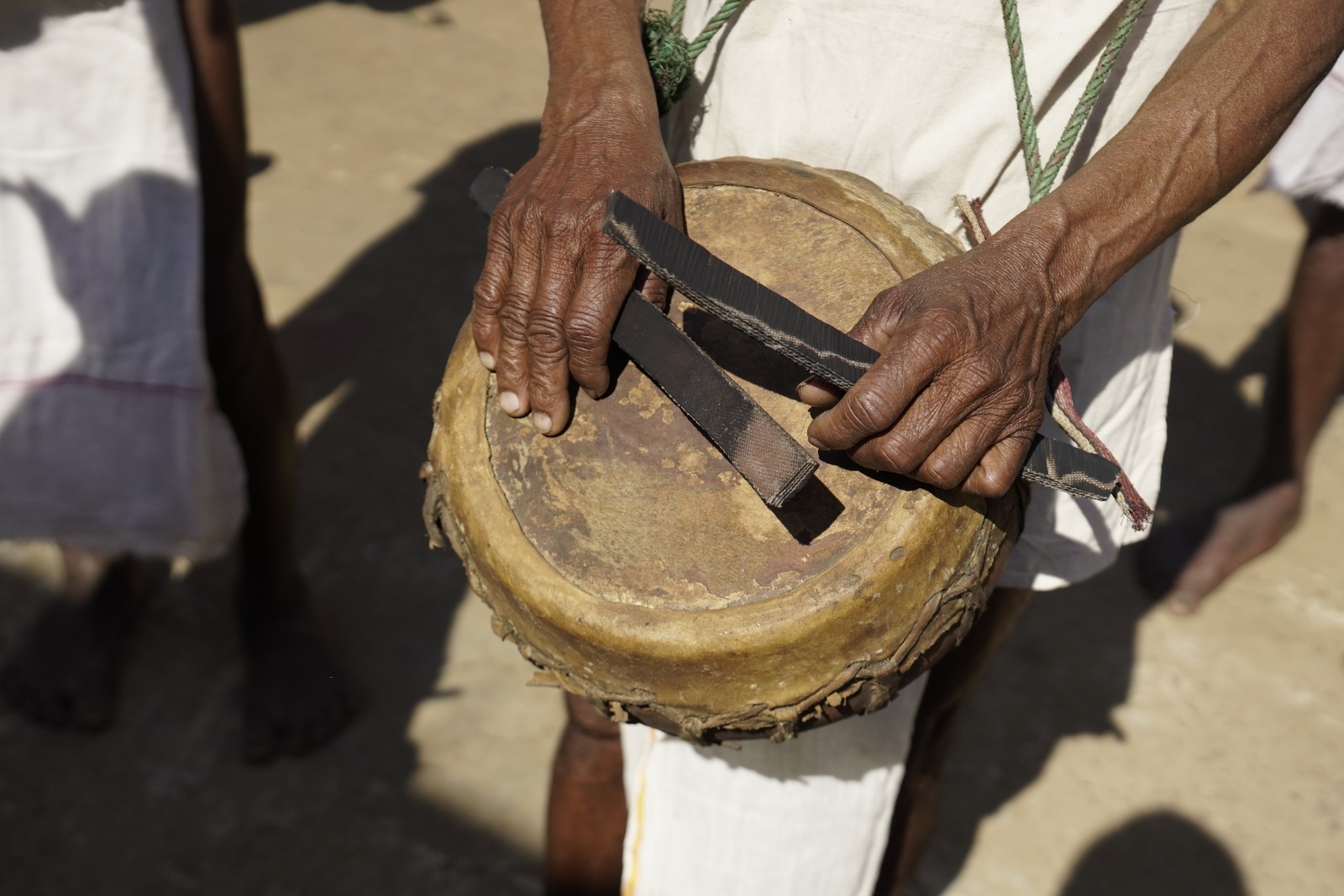
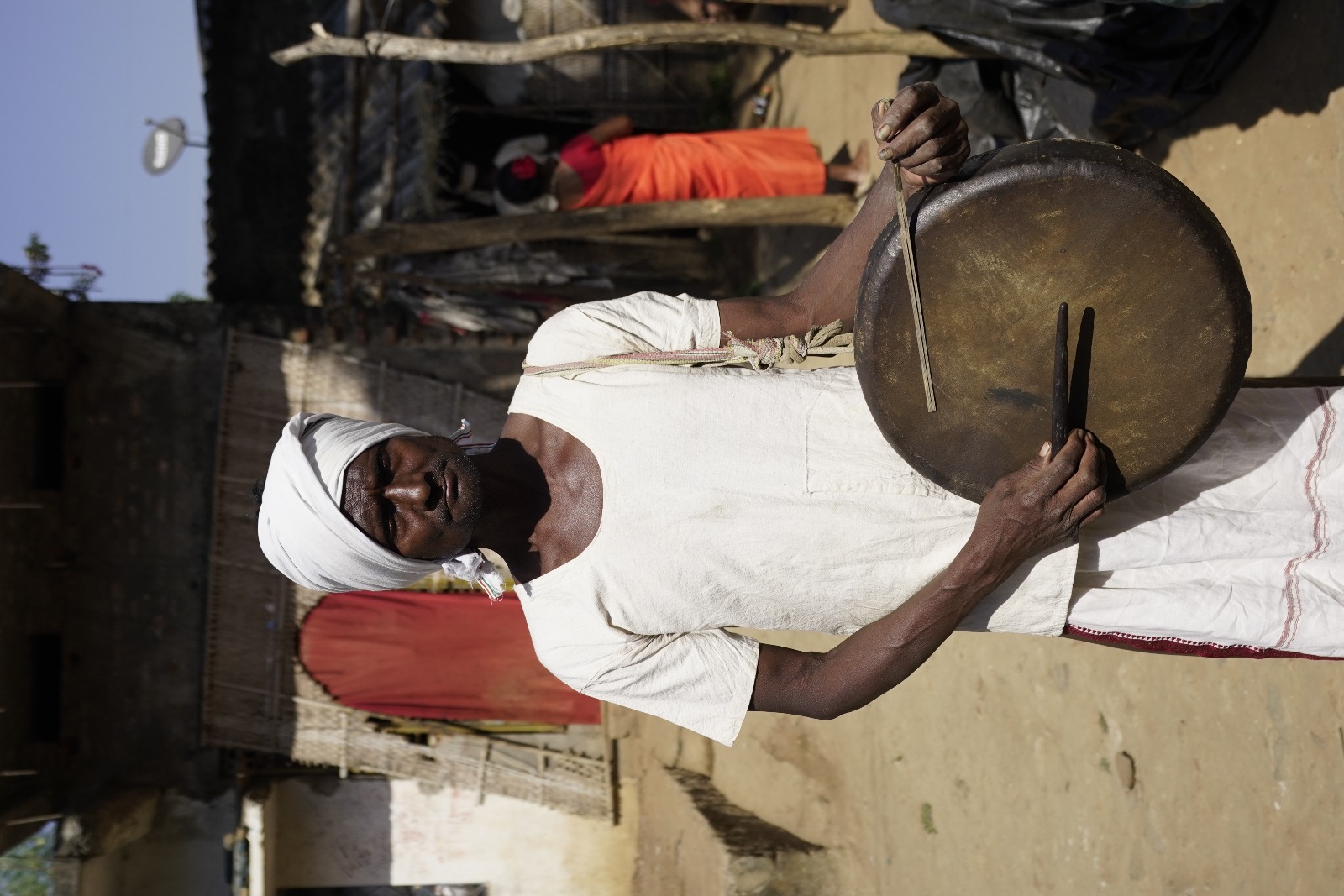
Thongseng dance features vibrant traditional instruments that enhance its lively performances. Key instruments include the drum, played by men to provide rhythmic beats, and the Tudum, a kettle-shaped drum that adds depth. The Cornet (Taretapaneh) contributes melodic sounds, while the bamboo stem fiddle (Goh Goh inz deb) offers unique tones with its coconut resonator. Additionally, brass cymbals (Gangalam), small drums (Dagadu), and various bells enrich the ensemble, creating an energetic atmosphere that beautifully complements the dance movements.


